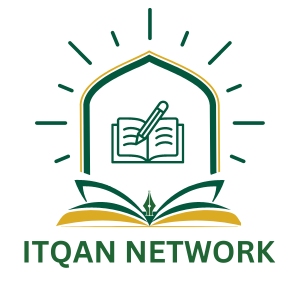well, learning Arabic from the Quran is really hard, you should at least learn the Arabic grammar and some Arabic words.
So before you start learning Quranic Arabic you should first start learning some Arabic and you can do so in a fun way by watching movies or series.
In this article, we will see how to learn Quranic Arabic step by step, in addition to the best way to learn Arabic on your own.
How long does it take to learn Quranic Arabic?
It won’t take much time if you spend 10 minutes daily learning Quranic words or studying one page every day. It will take about 3 months to finish one chapter. Once you do so you will be able to understand the rest easily.
The question remains, Can you learn Arabic from the Quran? Let’s show you more
How do I start learning Quranic Arabic?
The first thing to do is to start reading the Quran English translation and find the meaning and tarsier of the words or verses that you don’t understand.
There are many online resources like books, courses, and YouTube videos, just decide the best learning method for you. And to help you we have made simple steps for you to follow, here they are:
1- Start with Noorani Qaida:
The book is made for kids, beginners, and adults to teach them the right pronunciation of the Arabic alphabet and how to spell words and alphabets when they are combined.
The book focuses on teaching you the Arabic language so that you can read the Quran easily. So, this is the first step to take in your learning journey.
From this book, you will learn the alphabet, the right pronunciation of each letter, the pronunciation rules, short vowels, and long vowels. If you don’t want to learn just from books you can enroll yourself in a Noorani Qaida course that will teach you the basics and guide you throughout the course.
2- Learn Quran Reading:
After you have finished learning how to read Arabic, the right pronunciation of each letter, and the right reading of Arabic words, then comes the next step, which is to start reading Quran.
Now what you will focus on is how to read the verses and not just a single word or each word of the verse on its own. So that you can gain an understanding of the verse as a whole.
What you will do in this step is to start reading each verse of the Holy Quran slowly. Keep practicing reading each verse until you read it correctly with no mistakes. Then go to the next verse and repeat the process.
In this step, you got to listen to the recitation of your favorite reciter and repeat after him. Then try to read the verse on your own and see if you manage to do it right.
Also, if you don’t prefer self-study then no worries there are many courses out there, online and offline just decide if you want to study from home or go to a school, then enroll yourself in the course that you find best for you.
3- Start with Easy Chapters:
Here the goal is to start reading the short surahs first to encourage yourself to keep going especially for beginners. When you manage to read a full surah on your own you will get excited and eager to continue, unlike starting with long surahs.
So, start with the last chapter of the Holy Quran and don’t rush yourself learn slowly and be patient, when you finish the short surahs and you are able to read them correctly this means that you will manage to read the long surahs easily.
4- Learn your Favorite Verses:
When you read the Holy Quran sometimes you feel that the verse you are reading is talking to you, answering your questions and concerns, or making you feel relieved. And some verses have many benefits to the reciter, like Ayat ul Kursi.
This verse is from surah al Baqarah which holds a special place in every Muslim’s heart. So, you can start by reading this verse and other verses that you love reading, you don’t have to wait until you finish the whole Quran.
5- Try to Find Your Favorite Surah:
Another thing that will encourage you is to read your favorite surah. Some people prefer to read Surah Rahman, al Kahf and Surah Yaseen, and other surahs for their many benefits. You can also start by reading those surahs or any other surah you love.
And you don’t have to wait until you finish the whole Quran, read it at any time.
6- Learn the rules and tajweed to read the Quran correctly:
To learn how to read the Quran without mistakes the first thing you should do is to learn what is called tajweed rules. It is the rule used to read each letter correctly. The word tajweed itself means beautification, the act of perfecting something.
With tajweed you will learn how to pronounce the words in their right form, as each letter comes out from a part of the mouth, tajweed will help you do so.
The prophet’s peace and blessing be upon him said: “The best among you (Muslims) are those who learn the Quran and teach it.” (Sahih Al-Bukhari).
7- Take each rule one at a time:
Don’t learn all the tajweed rules at the same time and then try to apply them because this will be a disaster. Give time to learn each rule at a time then apply the rule that you have learned.
By doing so you will give the required time for your brain to process and learn correctly instead of rushing things off.
8- Listen to your favorite Quran reciter:
To learn the tajweed rules better and be able to read without making any mistakes you should listen to a reciter and read after him. Pay attention to how he reads, when he raises his voice, and when he lowers it.
Listen to how he pronounces each letter and word, the more you listen the better you get. There are many reciters that you could choose from like Saad El Ghamidi, Abdul Rahman Al Sudais, Mishary Rashid Al-Afasy, and Abdul Basit Abdus Samad.
9- Learn the meaning of what you read:
Try your best to understand each verse you are reading, read the translation of the Quran, and search for what you don’t understand.
10- Recite Quran slowly:
The main goal of reciting the Quran is to understand it, read it slowly with care, and if you don’t understand the meaning of a verse or word then search for it, don’t skip it.
So, you need to recite slowly and pay attention to every word and search for the meaning of what you don’t understand. Sit in a quiet and clean place so that no one distracts you.
How can I learn Arabic by myself?
There are many ways to learn the Arabic language, but here we will mention the best methods that will help you learn faster.
Here are the best learning methods:
- Online Audio & Podcasts for learning Arabic.
- YouTube learning Arabic channels.
- Online Arabic courses.
- Application for learning the Arabic language.
- Courses websites.
- Arabic news.
- YouTube Arabic bloggers.
- Arabic articles.
learning Arabic online using courses websites:
Those websites offer many courses in Arabic besides learning Arabic language courses. Famous examples of these websites include:
- EDX.
- Coursera.
Is Quranic Arabic different from normal Arabic?
Yes, they are both different. Quranic Arabic is now called classical Arabic it doesn’t have any dialects. On the other hand, modern Arabic has many dialects. Here are the main modern Arabic dialects:
Maghrebi Arabic:
This dialect is used in Western Arab countries which include: Algerians, Moroccans, and Tunisians. The total number of people who speak Maghrebi Arabic is about 80 million speakers.
You can learn Maghrebi Arabic from the textbook ‘The Routledge Introductory Course in Moroccan Arabic’.
Egyptian:
Egyptian Arabic is the Arabic used in Egypt. And most Arab understand it, as Egyptian movies and TV series are popular. So, if you are a non-Arabic speaker then this might be the easiest dialect to learn.
Arabian colloquial:
This Arabic dialect is also called Khaliji or Gulf Arabic. The countries that speak it include Oman, Saudi Arabia, UAE, and Kuwait.
Yemeni Arabic:
This one has many dialects but the main dialect is called San’ani or Sana’ dialect. You should know that the hardest two dialects to learn are the Yemeni and Maghrebi.
Levantine:
The Arabic dialect is spoken in Lebanon, Jordan, Syria, and Palestine. More than 30 million speak it.
Mesopotamian:
This includes several mutually understandable varieties that have been spoken even in parts of Iraq and eastern Syria.
Those are not all the Arabic dialects in the world, there are still many others like Hassaniya in Mauritania. It is close to the Gulf dialect than it is to the Maghrebi.

